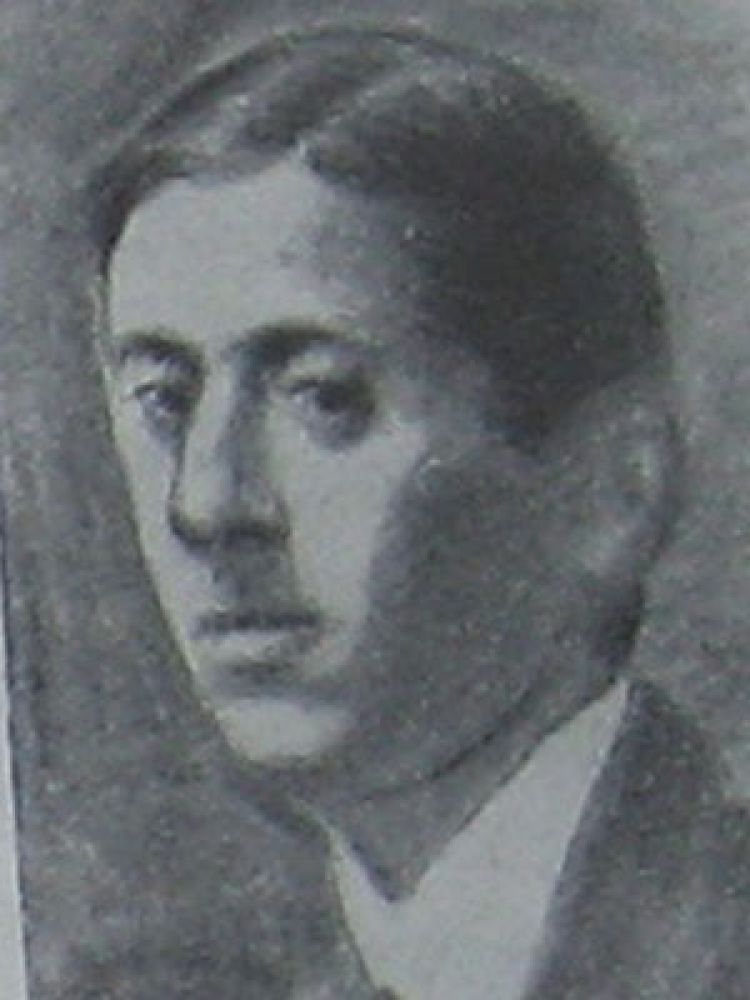- News
- Events
- Oneg Shabbat
- Collections
- Research
- Exhibitions
- Education
- Publishing Department
- Genealogy
- About the Institute
- Bookstore


Mordechaj Szwarcbard was born in 1896 in Łódź. Before the war, he was a member of the Central Committee of the local branch of Poale Zion-Left. Arrested several times by Polish authorities, he gained fame of an unrivalled speaker and a tough fighter. In his memoirs published after the war, Poale Zion-Left veteran Jakub Kener called Mordechaj Szwarcbard one of the most intelligent leaders of the Jewish workers’ movement in Poland.
At the turn of 1939 and 1940, after being freed from a labour camps, Szwarcbard moved from Łódź to Warsaw. He continued his work for the party and ran a party-owned soup kitchen for refugees from Łódź.
In Oneg Shabbat, he was interviewing refugees and wrote many reports, especially dedicated to conditions in various labour camps in 194o and 1941. He was also making copies of documents, including notes by Emanuel Ringelblum.
His most important contribution to the Archive are his own diaries written mainly in Yiddish and chronicles called „Current issues” covering the period from December 1939 to June 1941. He presented there harrowing images from daily life of Jews in occupied Poland, mainly in Łódź and in the Warsaw Ghetto: famine, persecution, arresting people and sending them to labour camps, smuggling, but also ghetto jokes and gossip. Szwarcbard provided also a detailed chronicle of the first days of German occupation in Łódź, where he was arrested by the Germans 22 times in order to be sent to forced labour. He continued his work after his arrival in Warsaw; in 1942, he stopped. He referred also to events from other cities – Kalisz, Łódź (for example and account by local rabbi Trajstman) and Wieluń.
![szwarcbard_2.jpg [284.49 KB]](https://www.jhi.pl/storage/image/core_files/2022/3/23/3b1fd071e1c7aef8c16ed30c3b57d83e/jpg/jhi/preview/szwarcbard_2.jpg)
Diary: On 27 December 1939, at 3 PM, I was arrested on the street with a group of other Jews and taken to the Łódź Kaliska station. There, we met another group, and went together to Karolew station near Łódź. When we arrived there, we were placed in carriages prepared for people resettled from Galicia. While they were waiting for Germans returning home, they were entertaining themselves with us. We were led by support SS units. [2]
Szwarcbard was probably killed in Treblinka in 1942 with his wife Miriam and son Daniel during the Great Deportation which began on 22 July 1942.
Written by: Anna Majchrowska
Translated by: Olga Drenda
Footnotes:
[1] Samuel D. Kassow, Who will write our history?, JHI, Warsaw 2017, p. 319.
[2] Archiwum Ringelbluma, Dzienniki z getta warszawskiego, vol 23, ed. Katarzyna Person, Zofia Trębacz, Michał Trębacz, WUW, Warsaw 2015, p. 209.
Bibliography:
Archiwum Ringelbluma, Relacje z Kresów, vol. 3, opr. Andrzej Żbikowski, ŻIH, Warszawa 2000.
Archiwum Ringelbluma, Tereny wcielone do Rzeszy: Okręg Rzeszy Gdańsk-Prusy Zachodnie, rejencja ciechanowska, Górny Śląsk, vol. 8, ed. Magdalena Siek, WUW, Warsaw 2012.
Archiwum Ringelbluma, Losy Żydów łódzkich (1939-1942), vol. 10, ed. Monika Polit, WUW, Warsaw 2013.
Archiwum Ringelbluma, Dzienniki z getta warszawskiego, vol. 23, ed. Katarzyna Person, Zofia Trębacz, Michał Trębacz, WUW, Warsaw 2015.
Archiwum Ringelbluma, Obozy pracy przymusowej, vol. 24, ed. Marta Janczewska, WUW, Warsaw 2015.
Samuel D. Kassow, Who will write our history?, JHI, Warsaw 2017.